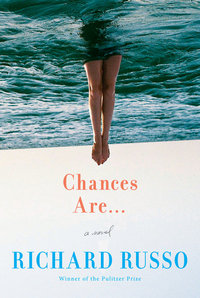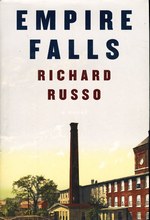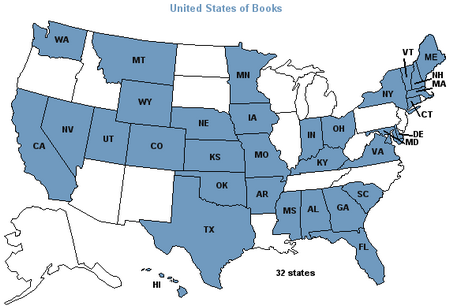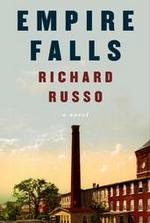 Chances Are . . .
Chances Are . . .
Hardcover, 302pg.
Knopf Publishing Group, 2019
Read: August 5 – 6, 2019

| What were the odds these three would end up assigned to the same freshman-dorm suite at Minerva College on the Connecticut coast? Because yank out one thread from the fabric of human destiny, and everything unravels. Though it could also be said that things have a tendency to unravel regardless. |
Whatever the odds were, three very different freshman from very different backgrounds did end up assigned to the same dorm suite and ended up working in the kitchen together. It’s the kind of friendship created by shared living space, shared experience and intense emotions (college in general, and the Vietnam Draft they watched on TV together). They became the Three Musketeers—in spirit and in name to those who knew them—and then they left Minerva College and started their lives. Then, yes, things unraveled.
It’s now forty-four years later and they reunite at Lincoln’s Martha’s Vineyard home for one last hurrah before Lincoln sells the family home. The three of them spent plenty of time there in college, and what better way to prepare to sell? But there’s a shadow over their reunion (and not just the fact that they’re all showing their age in different ways).
As with Dumas’ trio, there was a fourth—like them, yet not. Her name was Jacy. All three men were in love with her, but in a true one for all fashion, they didn’t try to see if there was any chance for a relationship with any of them. On the last weekend they spent in this house, a few weeks after graduation, Jacy left early one morning and was never seen again. All three—Lincoln, Teddy, and Mickey—are haunted by memories of that weekend as they assemble.
Each man responds to these memories differently, Teddy indulges in self-introspection, Mickey drinks a lot and spends a good deal of time planning for the trio to catch some live music. Lincoln starts looking for an explanation—and ends up talking to a retired police officer who remembered the case, tries to build a case against a neighbor, and generally stirs up trouble asking questions.
This sounds like the setup of a Crime Novel, doesn’t it? I’ve read so many book blurbs that this sounds like that I started expecting this to be Russo’s take on Crime Fiction. While we do learn what happened to Jacy and why; the book is about so much more. It’s about friendship, fleeting youth, the expectations of others, aging, and love—probably a few other things, too.
| “How about a cup of coffee?”
“I had one on the ferry. ” “Doesn’t mean you can’t have another.” “With me it does, actually.” In fact, it was distinctly possible the near-constant state of gastric distress Lincoln suffered these days was a symptom of an as-yet-undetected ulcer traceable to the 2008 financial meltdown. On the other hand, it might be nothing more than acid reflux, which came with the territory of getting old. His wife, being a woman, wanted clarity on this issue, whereas Lincoln himself, not being one, was content to dwell in uncertainty a while longer. |
I don’t think I even really looked at the blurb for this, I just knew it was a new Richard Russo novel that didn’t feature Sully. That was enough for me to put it on reserve at the library weeks ago, so I could be one of the (possibly the) first to get my hands on it. As no two of his books are really the same kind of thing, it made for a pleasant surprise that way.
I don’t know that I was captivated from the get-go, but these three (and poor Jacy) grew on me, each had a story that was familiar, yet felt fresh. These were complicated me with complicated feelings—well, you’re never sure about Mickey, he seems pretty straightforward. We spend most of the novel seeing things (past and present) from Lincoln and Teddy’s perspectives—which helps us see everything going on with them, and primes us to pay close attention when it shifts for Mickey’s perspective.
I’m ignoring most of my notes now because I think I’ve really said everything I needed to say. Russo’s about as close as you can get to a sure thing in writing today and he brings that skill to these pages and these characters. Chances Are . . . is not something I’ll look forward to rereading like Straight Man, or as powerful as Empire Falls or as moving as Bridge of Sighs, but more interesting—and with more staying power—than That Old Cape Magic or anything published before Straight Man (not that any of those were bad, they just don’t appeal to me the way his latter works do). Still, there’s an ineffable quality to this work that will make me keep thinking about it—the power of friendship, lost love, how our youth controls our futures, and what really anchors us to this world.
I liked the story, I liked the characters, Russo can’t write a bad anything—there’s a lot to commend this book, and little to discourage a potential reader. Russo’s one of the best America has to offer right now, and this is further evidence of that.
—–










